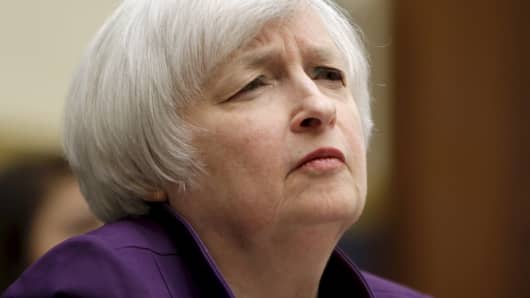Well, I guess we can rule out another rate hike in January. That's what economists are saying, not that anyone seriously believed that the Federal Reserve was going to engage in back-to-back hikes after promising that rates would go up only gradually in the months ahead.
With Wall Street off to its worst annual start in history, stock prices have been but one indicator that the economy could slow in the weeks and months ahead. That should give the Fed pause.







